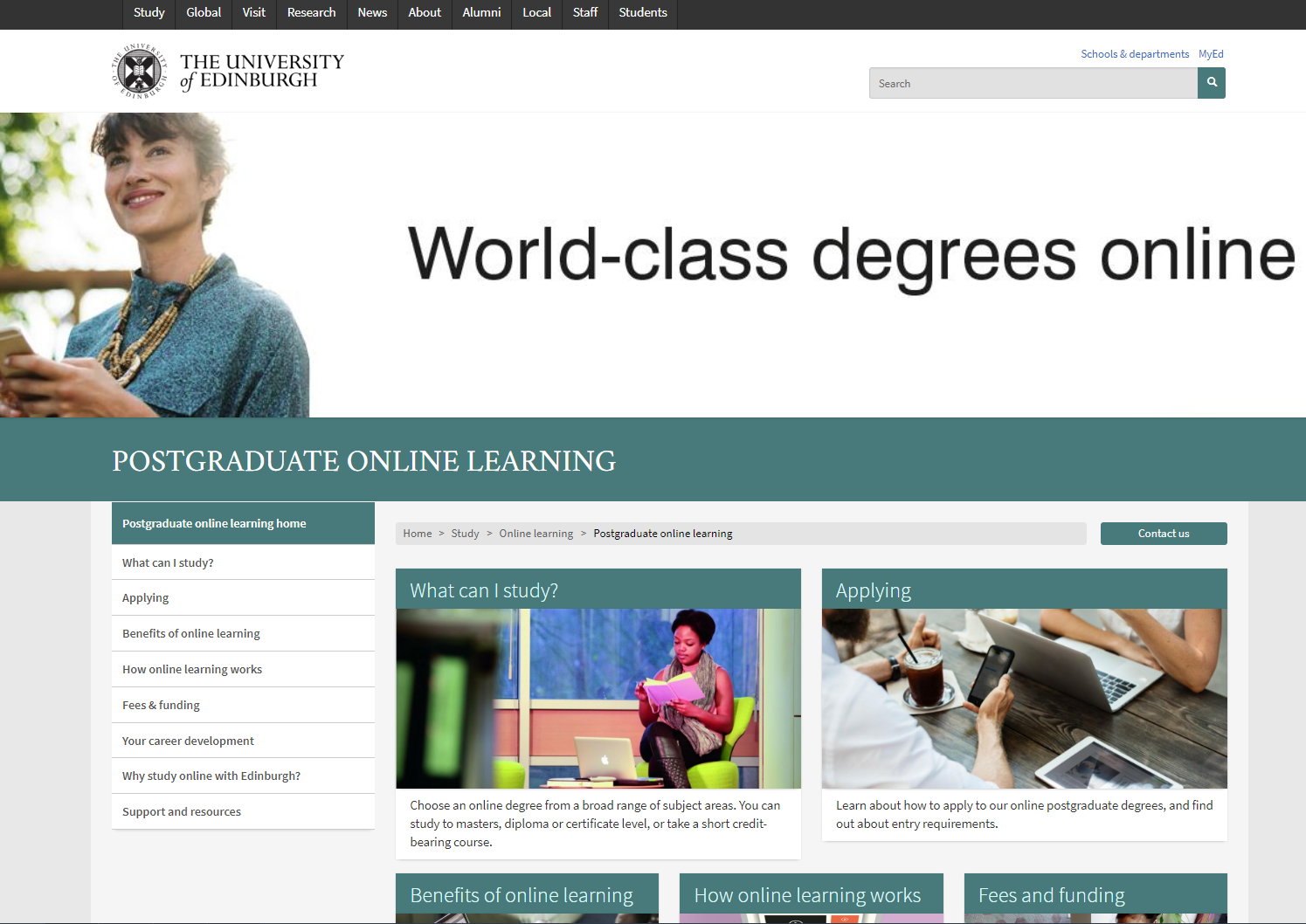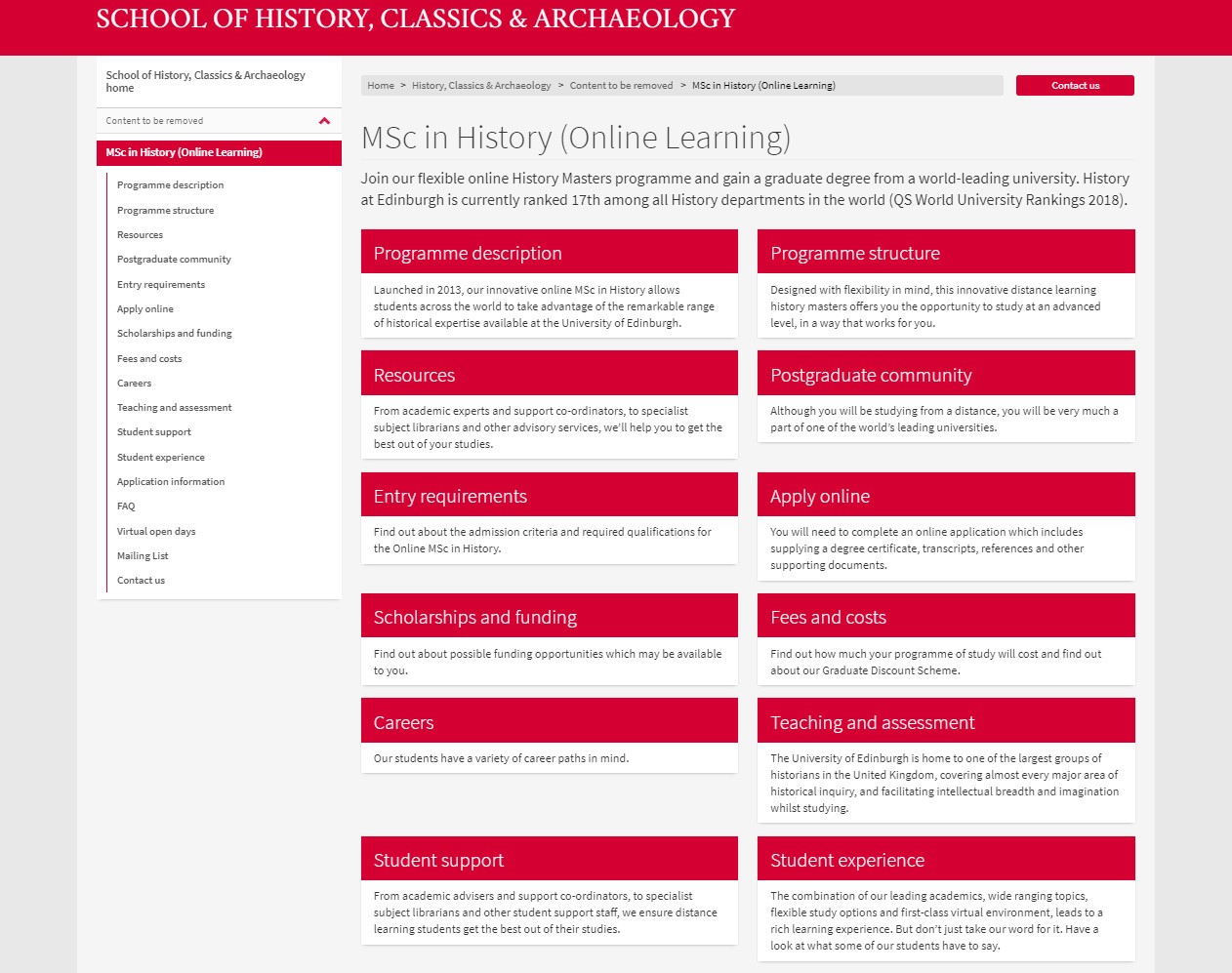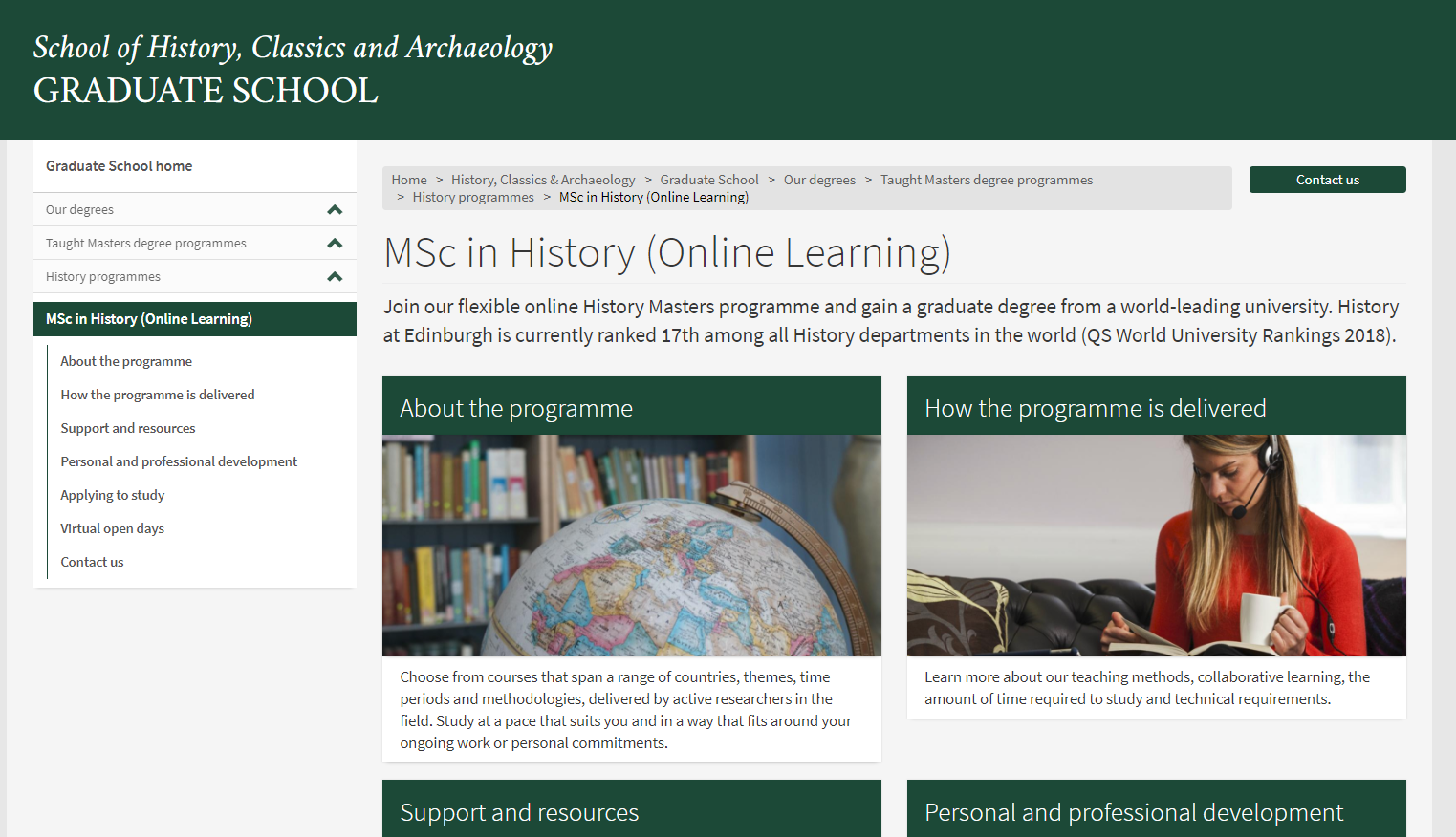Sprinting to improve online learning websites
Over the summer we worked to improve the quality of web provision for prospective online learners. In this post, we recap the project process we followed and outcomes.
Improving the experience for prospective students
Online learning is a key focus for the University, with the potential to reach new international audiences and ambitious growth targets to match.
Working with an external consultancy, we identified that our web content aimed at prospective online learners wasn’t meeting their information needs.
Prospective online learners are typically older, established professionals looking to enhance their career prospects through part-time study. They do this while still maintaining professional and family commitments, and as such, have quite different information needs from campus postgraduate students. This includes wanting to understand:
- how online learning works
- the career paths and prospects with an online degree
- how flexible the degree is in terms of time commitment
- whether an online degree is equal in quality to an on-campus one
Trialling new ways of working
To address these needs, we devised a six-week ‘sprint’ to develop the central online learning website and chose one masters programme to pilot this sprint process on as well. We worked with colleagues in the School of History, Classics and Archaeology to redevelop their online MSc in History programme website.
The sprint also brought together colleagues from Learning, Teaching & Web (LTW) division of Information Services, Communications & Marketing and Service Excellence Programme.
The project solely focused on developing the site content in the EdWeb Content Management System (CMS) and did not involve technical development.
We identified opportunities and potential barriers from the outset and created a shared vision, with the intention that the approach could be iterated and scaled to other online programme websites.
Project objectives
The goals of the project were to:
- satisfy needs for online learners as identified in our earlier research
- pilot processes and activities for use across online programmes
- engage and build momentum in the relevant communities
- understand online channel use and appropriate measurement/tracking
How the sprint worked
We divided the six-week sprint into five phases, broadly based on the Agile methodology – discover, build, launch, learn and improve. Teams were formed based on discipline – user experience, content design, campaigns and analytics.
Read Duncan’s blog post on the user research for the online learning project
We adopted collaborative tools and practices. This included a Sharepoint site, which enabled the teams to collaborate on the objectives and outcomes; establish dependencies; and log risks, opportunities and improvements. We held short daily stand-up meetings to align teams and manage potential project blockers, and got together for weekly meetings and workshops.
Outputs and results
Central online learning postgraduate website
In June we published the new central online learning website. Previously, the only central content aimed at online learners was a small subsection of the Postgraduate study site that mainly existed to link to programme pages.
Now there’s a central hub for all prospective online learners that answers the key questions they have about these degrees, including how they run and fit around the work-life balance.
Online learning postgraduate website
The early results have been impressive – average daily website sessions on the website have increased by 54% and online visibility has increased markedly, with content in targeted areas now outranking competitors.
MSc History website
In July we published the redeveloped MSc in History website. The new site:
- features a revamped IA constructed around user needs
- condensed content into fewer subsections which should be more obvious to the target audience
- contains more information on how the programme is delivered
- includes more video content featuring student testimonials
MSc in History (Online learning) website
The History website went live shortly after applications had closed for 2018 entry, so we’ll be monitoring the History website over the coming recruitment cycle to better understand the impact of the new site.
Next steps
We identified a number of key actions that we’re working to complete post-sprint. As websites are a process and not a project, we’re continuing to conduct user testing and develop the content.
Our main challenge at the moment is working on how to scale the sprint process for other online learning programmes across the University. We are exploring options for sharing our findings with colleagues in these areas and will be producing guidelines and hosting workshops for practitioner communities.





